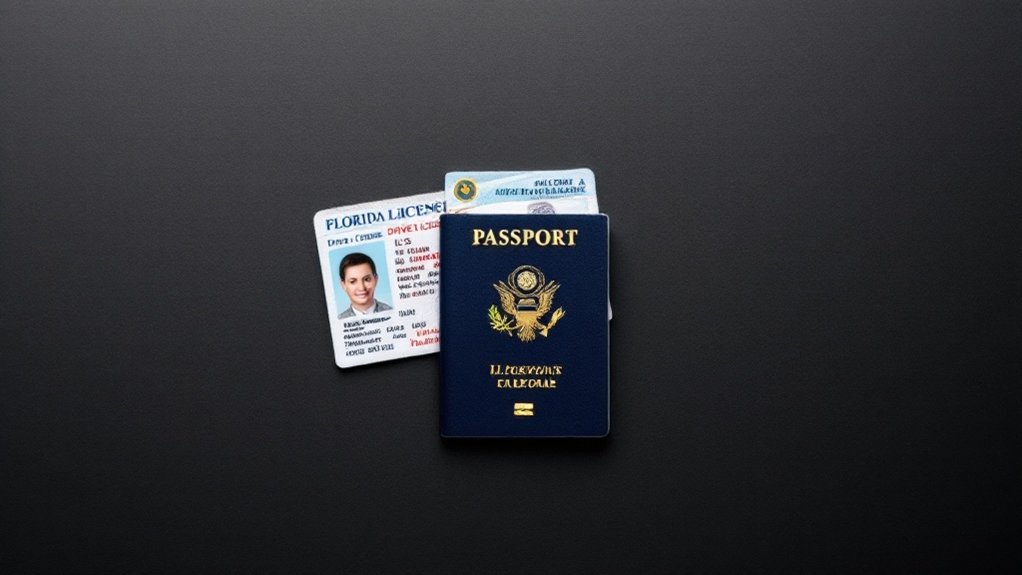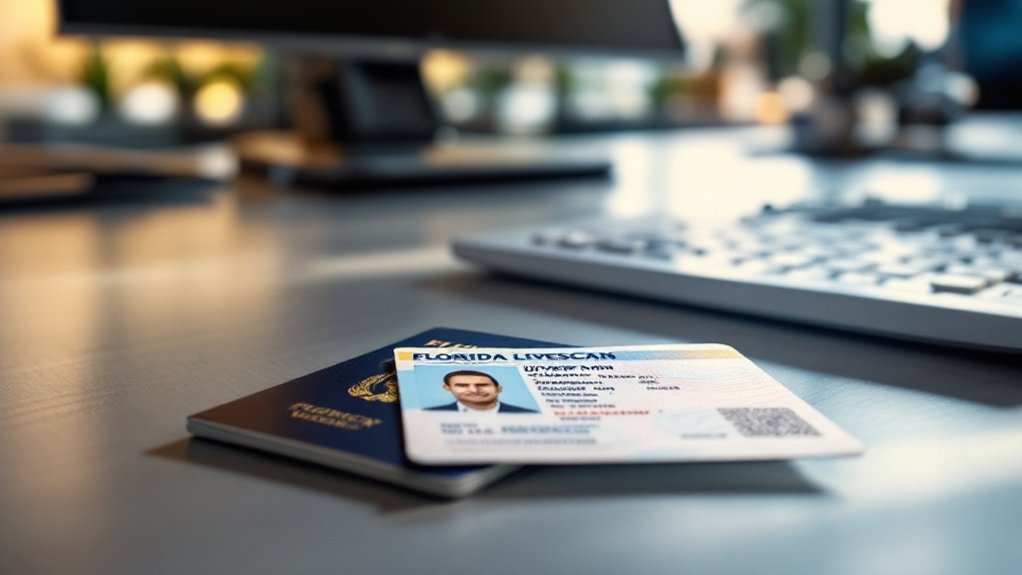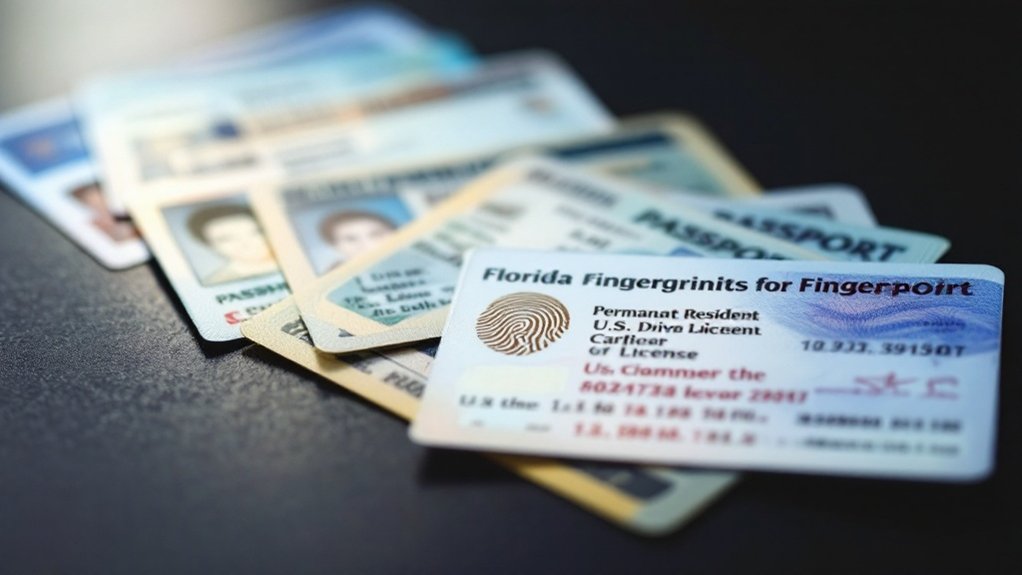When you’re getting fingerprinted in Florida, you’ll need two forms of ID. A valid state-issued driver’s license or U.S. passport works as primary ID. For secondary ID, use a bank statement or utility bill. These documents help verify your identity. You’ll also need to understand the specific requirements for your situation, whether it’s for employment or certification. Exploring further will provide more details on the process and its legal considerations.
Fingerprinting Categories and Requirements

When you’re preparing for fingerprinting in Florida, it’s crucial to understand the different categories and requirements involved. Fingerprinting categories include public school employees, whose processing is handled by the school district, and nonpublic school employees, who may require fingerprinting for certification. Volunteers and those working with vulnerable populations often need fingerprinting as well. Live Scan technology is used for electronic fingerprint submission to the FDLE and FBI, requiring an ORI number. The process involves approved providers and typically requires a valid ID and specific forms. Additionally, individuals seeking a Florida teaching certification must undergo a background screening, which includes a fingerprinting requirement to ensure compliance with state regulations. You’ll need to make certain you have the correct documentation and follow the guidelines set by your employer or agency.
Acceptable Forms of Identification
To undergo fingerprinting in Florida, you’ll need to present specific forms of identification. Primary identification includes a valid state-issued driver’s license, U.S. passport or passport card, and federal government-issued photo IDs like the Personal Identity Verification Card (PIV) or Uniformed Services Identification Card. For non-U.S. citizens, a foreign passport with appropriate immigration documents is required.
For secondary identification, documents like bank statements, utility bills, marriage certificates, and birth certificates can be used. Guarantee that at least one ID matches your current name and date of birth, and another verifies your current U.S. address. All documents must be original, not copies or photos. Additionally, fingerprinting in Florida often requires meeting FBI regulations to ensure accurate and legal processing of fingerprint cards.
Livescan Service Providers and Locations

After guaranteeing you have the necessary identification documents for fingerprinting in Florida, you’ll need to find a Livescan service provider to complete the process. These providers must be approved by the Florida Department of Law Enforcement (FDLE) and are listed on their website. Many offer hard card scanning in addition to Livescan services. Providers are distributed across various regions, including major cities like Jacksonville, Fort Lauderdale, and Miami, offering both walk-in and appointment services.
To find a provider, you can use the FDLE’s list or regional maps. It’s advisable to contact them beforehand to verify they can meet your specific needs.
Fingerprinting Fees and Payment Methods
Fingerprinting in Florida involves several fees that you’ll need to ponder. The Live Scan Service Fee typically ranges from $20 to $50, depending on the provider and location. Additionally, you’ll pay a FDLE Fee of about $24 for state-level checks and an FBI Fee of approximately $13 if federal checks are required. This brings the total estimated cost to $50 to $90.
For payment, you can use cash, online payments, or credit cards, depending on the service provider. Some services may require additional sales tax. IdentoGO payments must be made directly to Idemia. These options provide flexibility and convenience for those undergoing fingerprinting in Florida.
The total cost of Live Scan services in Florida can vary significantly based on the specific background check requirements, which may include both state and federal checks.
Legal and Privacy Considerations for Fingerprinting**

When you undergo fingerprinting in Florida, you’ll need to bring two forms of identification to verify your identity. This process is essential for guaranteeing compliance with state regulations and preventing identity fraud. Fingerprinting is mandated by law for various licenses, including funeral services and insurance, and is used to conduct state and federal criminal history checks.
As you go through this process, your fingerprint results are kept confidential and not shared with other agencies or states. The Florida Department of Law Enforcement oversees the process, safeguarding data privacy and compliance with federal and state laws. Your consent is required for fingerprint retention, and electronic submission ensures secure handling of your data.
Conclusion
As you undergo fingerprinting in Florida, you’ll need a valid government-issued photo ID, like a driver’s license or state ID. While Livescan offers quick processing, traditional fingerprint cards are also available. The cost is around $50.75 plus tax. On one hand, fingerprinting guarantees security; on the other, it raises privacy concerns. You must use approved providers like IdentoGO, highlighting the balance between convenience and legal compliance.

